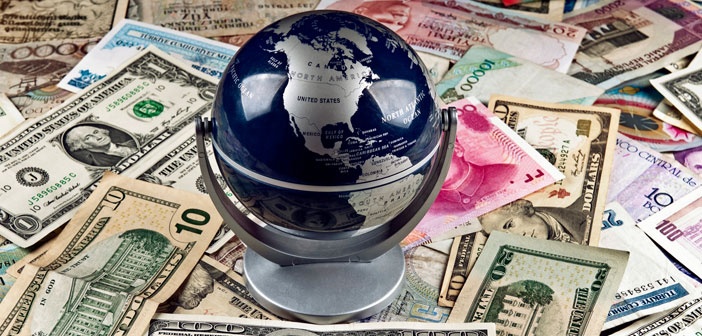World: Global debt hits $233 trillion record in Q3

Global debt rose to a record $233 trillion in the third quarter of 2017, more than $16 trillion higher from end-2016, according to an analysis by the Institute of International Finance. Private non-financial sector debt hit all-time highs in Canada, France, Hong Kong, South Korea, Switzerland and Turkey.
The Washington DC-based financial industry body said while total debt had risen by $16 trillion in the third quarter compared to end-2016, debt ratio to global gross domestic product (GDP) had fallen for the fourth quarter in a row as the world economy expanded.
It was referring to total debt incurred by the household, government, financial and non-financial corporate sectors.
However, China which has accounted for the lion's share of new debt in emerging markets, saw the pace of debt accumulation slow; debt rose by two percentage points last year to 294 percent of GDP, compared to an average annual increase of 17 percentage points in the 2012-2016 period.
A group of economists in 2014 warned that rising global debt (or "leverage") was risky and hindering the global recovery. The IIF warns that if interest rates rise around the globe that could make many debt burdens harder to service.
The former chair of the Financial Services Authority, Adair Turner, wrote a book in 2015, highlighting about the reliance of many economies on ever-growing debt piles, generated by unstable financial systems, to drive GDP growth.
However, the IIF also points out that, despite hitting a new high in nominal terms, the share of global debt to global GDP has been falling for four consecutive quarters. The ratio of debt to GDP ticked down by three percentage points. The ratio still stands at roughly 318 per cent.
The decline in the ratio was also helped by rising inflation and countries like China taking action to attempt to mitigate destabilising levels of debt, according to the IIF analysts.
The analysts also warn that debt levels could cause banks to shy away from further interest rate rises on fears about how firms and governments with significant debts could afford to service them.

